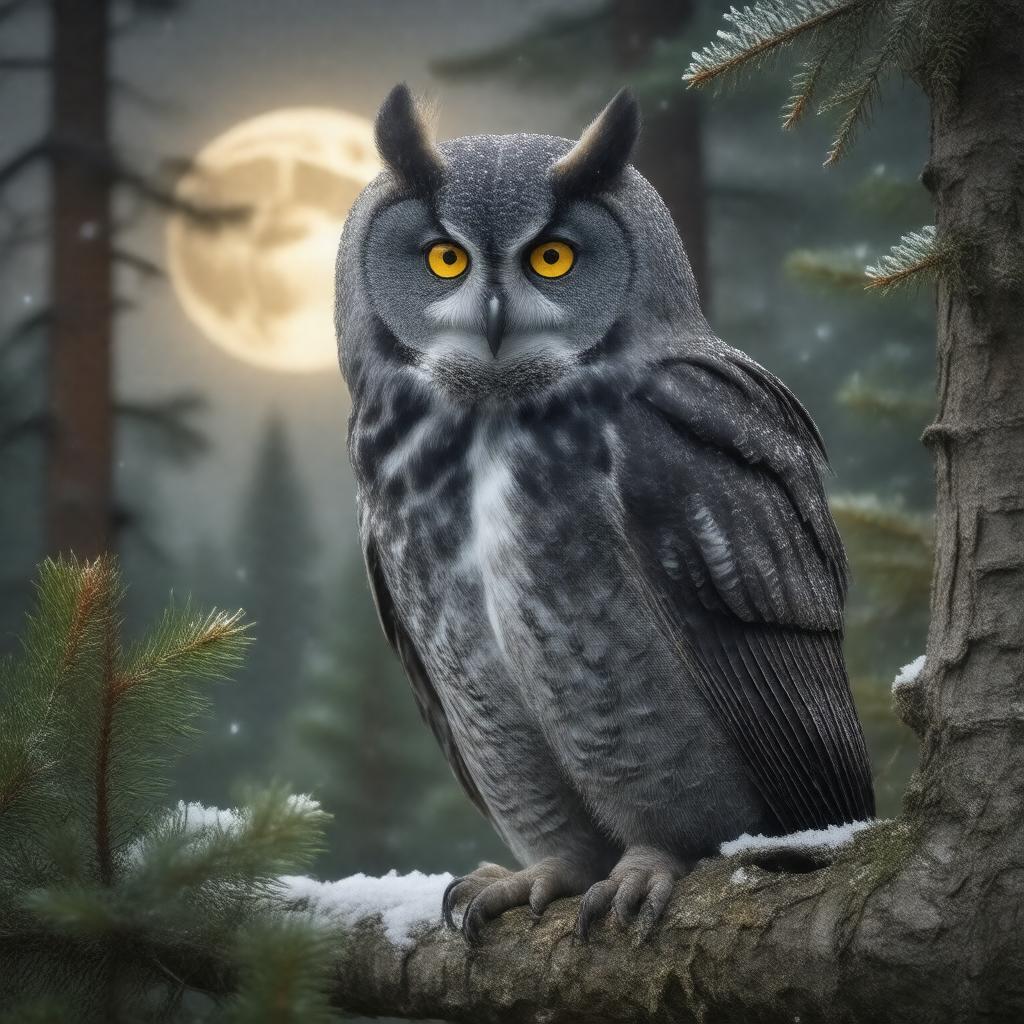Prompt
"Generate an image of a majestic Great Grey Owl (Strix nebulosa) perched on a branch in a dense coniferous forest, showcasing its distinctive large facial disc, yellow eyes, and grey plumage, with a subtle moonlit background to highlight its nocturnal nature, in a realistic and serene style."

